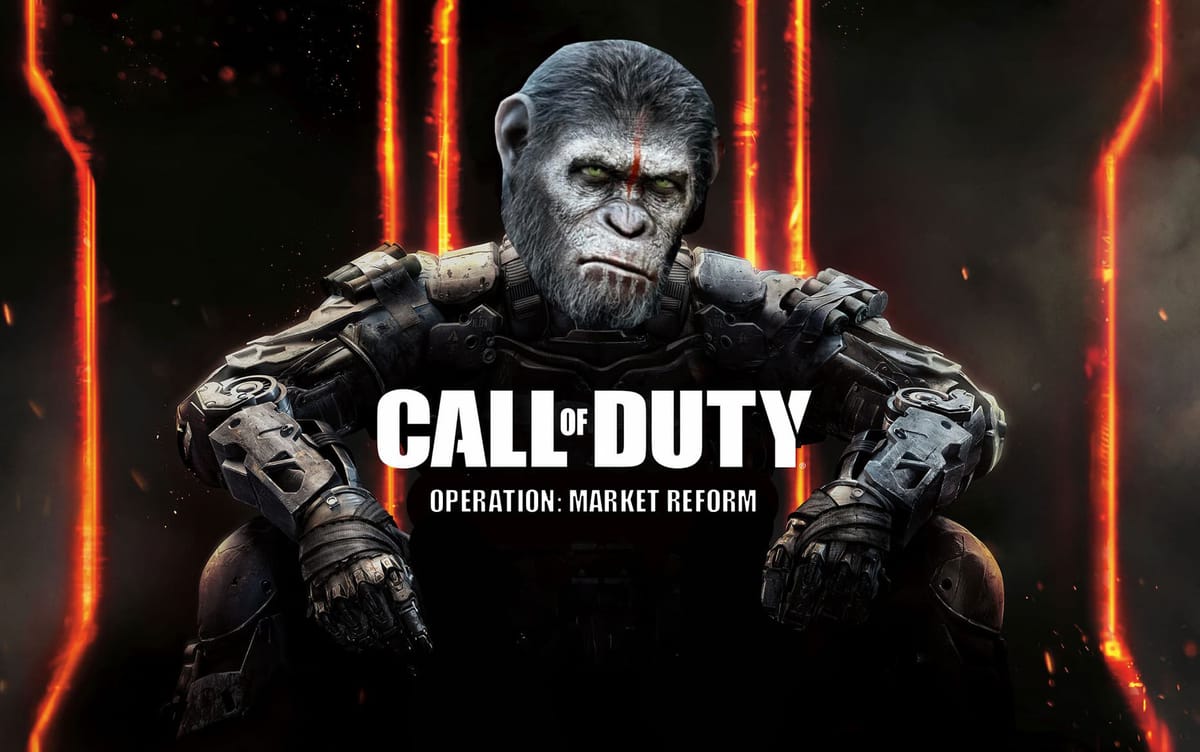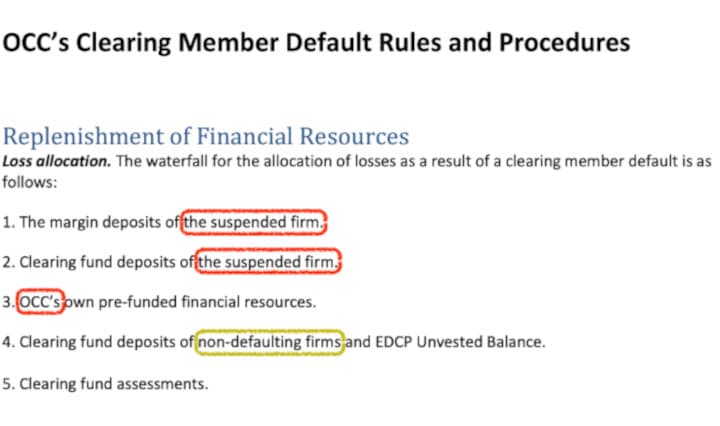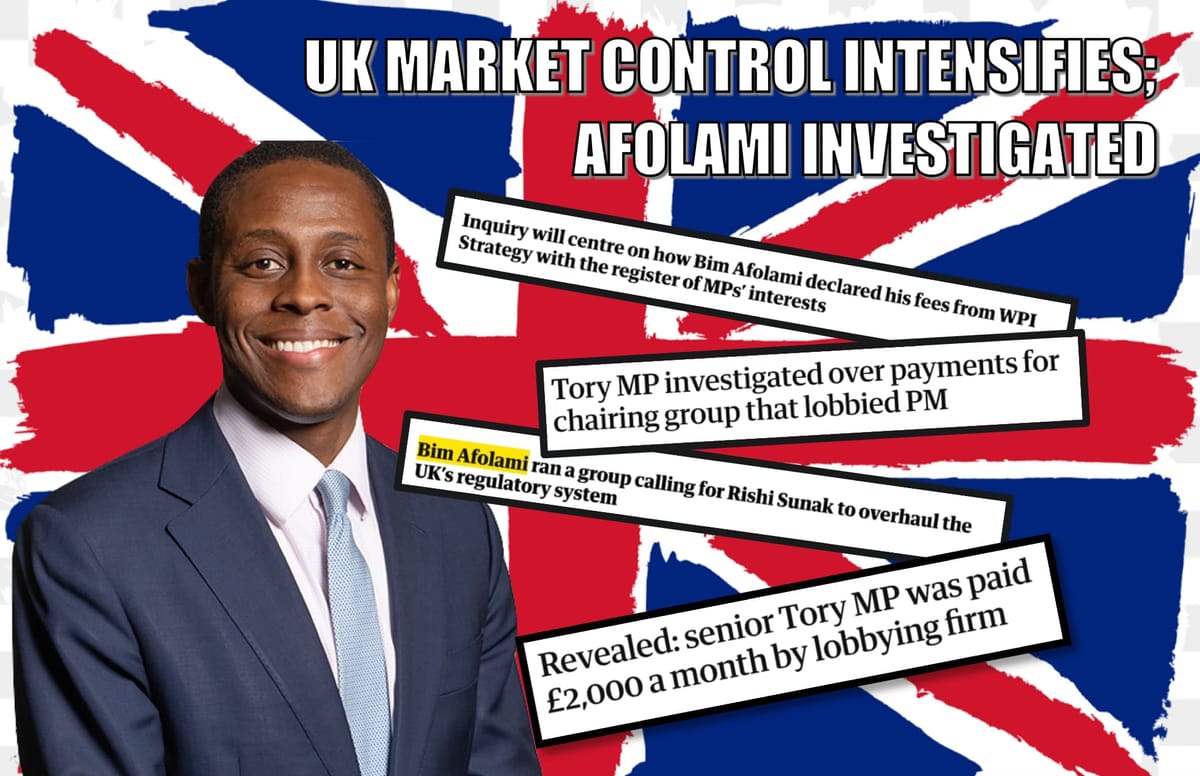FINRA's 'Discipline' and Evercore's Unchecked Trades: Risky Rules & Soft Blocks Threaten Market Stability & GME!

https://www.finra.org/sites/default/files/fda_documents/2017056128501%20Evercore%20Group%2C%20L.L.C.%20CRD%2042405%20AWC%20gg.pdf
Good morning Superstonk! I would like to share some more FINRA 'discipline' with y'all. As these releases convey a ton of information I am going to try a bit of a different approach, I hope this format makes sense.
- First, I am going to outline what they did in 6 points from the filing.
- Next, I am going to pull the rules they broke and attempt to provide wut mean definitions
- Third, I am going to try and break each section against Evercore down a bit further.
Let's get to it!
Outline of the "discipline" is against Evercore Group L.L.C for:
- from at least July 2017 through May 2023, Evercore maintained single order quantity (SOQ) controls that were too high to prevent the entry of erroneous orders in certain securities.
- During this period, these included maximum share quantity and maximum order value controls, and a control setting the maximum percentage of a security’s average daily volume (ADV) at 100%.
- Moreover, the firm used uniform thresholds for all securities and did not consider the characteristics of individual securities.
- Further, during various periods, Evercore’s procedures did not explain, or did not adequately explain, its rationale for its decision to set the maximum share quantity and maximum order value limits at these levels.
- From at least July 2017 through May 2023, Evercore also established a control that limited the maximum percentage away from the NBBO midpoint that a limit order could be priced. The firm was also unable to provide any documentation or sufficient rationale explaining or supporting these limit order price limits.
- From at least July 2017, Evercore’s market access controls applied soft blocks to transactions that breached its risk management thresholds. In contrast to a hard block, which prevents an order that triggers a credit, price, or size control parameter from being routed to a market center by automatically rejecting it, a soft block pauses the order for review, after which the reviewer may release or cancel the order.
The Rules Evercore broke:

Wut mean?
Think of the SEC like a school principal. This principal makes rules to make sure everyone in school behaves and treats each other fairly. If someone breaks the rules, the principal will step in to correct their behavior.
Now, imagine there are some students in this school who have a special job. They're called "broker-dealers". These students act like middlemen, helping other students trade baseball cards. These broker-dealers have a special set of rules they need to follow because their job is very important. They handle other people's baseball cards, so they need to be responsible and trustworthy.
Exchange Act § 15(c)(3) is like a rule from the principal saying: "All broker-dealers should not break any rules that I've set up to ensure they behave responsibly and fairly. These rules are there to protect everyone in the school from losing their baseball cards unfairly."
- So, in real life, the SEC makes rules to ensure that broker-dealers (financial professionals who trade stocks, bonds, and other securities) act responsibly. Exchange Act § 15(c)(3) is a rule that says these broker-dealers can't break any of the SEC's rules that are meant to safeguard the public's money and trust.
I think of Exchange Act Rule 15c3-5(b) as the school principal telling the broker-dealer students: "If you're going to help others trade their baseball cards, not only do you need to follow the rules, but you also need to have a plan in place to manage any problems or risks that might come up. You also need to write down and maintain this plan."
- For example, one risk might be if a student wants to trade a lot more baseball cards than they actually own. The broker-dealer student should have a plan to stop that from happening, because it could cause problems later on.
Let's say the school has a school store where students can buy things like pens, pencils, and snacks. Some students have accounts with the store where they can buy things and pay later. Now, the principal wants to ensure that no one is spending more at the store than they can pay back.
- In this example, Exchange Act Rule 15c3-5(c)(1)(i) is like the principal telling the broker-dealer students: "When you're helping other students trade their baseball cards, you need to make sure that they don't trade more cards than they actually own. You should set a limit or a 'credit threshold' on how many cards each student can trade. And if they try to trade more than that, you should stop the trade. You should also be careful about setting these limits - don't just guess. Get to know each student, their trading habits, and how many cards they can reasonably trade. And don't forget to write down how you made these decisions."
- Exchange Act Rule 15c3-5(c)(1)(ii) is like the principal saying: "Broker-dealer students, when you're helping with trades, you need to watch out for these mistakes. If someone asks to trade an amount of cards that seems wrong because it's way too many, or if they ask to trade the same cards twice, stop the trade. Don't let these mistaken trades happen."
- Exchange Act Rule 15c3-5(e) is like the principal saying: "Also, regularly check that your system for preventing these mistakes is working. If it's not, update it. Keep a record of these checks and any updates you make."
- Exchange Act Rule 15c3-5(e)(1) is like the principal saying: "Broker-dealer students, once a year at the very least, you need to stop and look at how you've been helping with the baseball card trades. Make sure your system for preventing mistakes and setting trading limits is working well. If it's not, fix it. Follow the steps you wrote down for how to do this check, and make sure to write down what you find when you do it."
- FINRA Rule 3110(a) is like the vice principal saying, "Every broker-dealer student who helps others trade baseball cards needs to be supervised. This supervision needs to make sure that these students follow not only the rules we've set here at the school (which represent the SEC rules), but also the rules I've set as the vice principal (which represent the FINRA rules). And remember, these rules aren't just suggestions - they're necessary to make sure everyone plays fair."
- FINRA Rule 2010 as the vice principal announcing, "While trading baseball cards, broker-dealer students need to uphold the highest standards of fairness and honesty. Any unfair practices or breaking of rules won't be tolerated."
Diving into what they Evercore did further:Evercore failed to establish, document, and maintain certain reasonably designed erroneous order controls and procedures:

https://www.finra.org/sites/default/files/fda_documents/2017056128501%20Evercore%20Group%2C%20L.L.C.%20CRD%2042405%20AWC%20gg.pdf
From at least July 2017 through May 2023, Evercore maintained single order quantity (SOQ) controls that were too high to prevent the entry of erroneous orders in certain securities. During this period, these included maximum share quantity and maximum order value controls, and a control setting the maximum percentage of a security’s average daily volume (ADV) at 100%. Moreover, the firm used uniform thresholds for all securities and did not consider the characteristics of individual securities. Further, during various periods, Evercore’s procedures did not explain, or did not adequately explain, its rationale for its decision to set the maximum share quantity and maximum order value limits at these levels. The firm also assigned certain customers SOQ thresholds that were not reasonable because they exceeded the customer’s aggregate credit threshold.
From at least July 2017 through May 2023, Evercore also established a control that limited the maximum percentage away from the NBBO midpoint that a limit order could be priced. Many of these price limits, however, were not reasonably designed because they were set at prices that exchanges designate as clearly erroneous without related, complementary controls that would address related risks. The firm was also unable to provide any documentation or sufficient rationale explaining or supporting these limit order price limits.
Wut mean?
Evercore had been managing trades in a way that had some issues from July 2017 to May 2023. They had set limits on the size and value of individual trades, but these limits were too high to stop erroneous (or mistaken) trades.
- They set these limits the same for all stocks without considering the unique characteristics of each stock, which is a bit like saying a single strategy works equally well for every game, be it chess, poker, or tic-tac-toe.
If Evercore was executing trades for GME during this period, these excessively high limits could have allowed mistaken or overly large trades of GME shares to go through.
- This could have caused unexpected price swings and market instability, affecting all GME shareholders.
Also, Evercore set a rule on how far away from the National Best Bid and Offer (NBBO) midpoint a limit order could be priced.
- This is like saying how much you can deviate from a 'fair' price when you're placing an order to buy or sell GME shares.
- But some of these limits were set at prices that the exchanges would consider clearly erroneous or way off the mark.
- And Evercore didn't have extra controls to manage the risks associated with such extreme prices.
- So, for GME, these erroneous prices could have caused even more price volatility and further affected GME shareholders. Not only that, but Evercore couldn't provide a good reason for setting these limits, and they didn't have proper records for it either.
- Basically, Evercore's lack of proper controls could have led to wild price swings and market instability for securities like GME, and this impacts everyone who's trading GME
Evercore failed to establish, maintain, and enforce a reasonable supervisory system concerning the documentation of soft block reviews and control limit modifications:

https://www.finra.org/sites/default/files/fda_documents/2017056128501%20Evercore%20Group%2C%20L.L.C.%20CRD%2042405%20AWC%20gg.pdf
From at least July 2017, Evercore’s market access controls applied soft blocks to transactions that breached its risk management thresholds. In contrast to a hard block, which prevents an order that triggers a credit, price, or size control parameter from being routed to a market center by automatically rejecting it, a soft block pauses the order for review, after which the reviewer may release or cancel the order.
Prior to December 2019, however, Evercore did not have any written procedures for reviewing orders that triggered a soft block. From December 2019 through May 2023, the firm’s procedures did not reasonably describe the steps firm personnel must take when reviewing a subject order or the circumstances under which a soft block may be overridden or confirmed. The firm also did not, or did not sufficiently, contemporaneously document its review of soft blocks, including documenting the rationale for releasing the subject orders into the market.
Evercore’s procedures also did not reasonably describe how the firm supervises soft block alert reviews. They did not specify how the firm’s daily review of “overrides of blocks and alerts” was to be performed or provide other relevant details, such as the specific reports to be reviewed or how reviews should be documented. The firm also did not review overrides of blocks and daily alerts within a reasonable timeframe. For example, Evercore did not review alerts generated in February 2020 until between April 8 and 23, 2020, despite its procedures requiring that they be reviewed daily.
Further, the firm modified financial risk control parameters to allow orders to be routed without triggering soft block alerts. Prior to January 2021, the firm had no procedures regarding when, and under what circumstances, a control parameter could be modified. Further, the firm generally did not maintain documentation relating to control limit modifications.
Wut Mean?
From July 2017, Evercore had these things called "soft blocks" in place. These are different from "hard blocks", which straight-up prevent an order that breaks certain rules from going through. A "soft block" puts the order on hold for a review, and after that, it might either be released or cancelled.
Think of it like a video game checkpoint. A hard block is a game over screen, you just can't proceed. But a soft block is like a boss fight – if you can prove your worth (or in this case, the order's legitimacy), you can continue.
The problem was, up until December 2019, Evercore didn't have any written rules for how to review these "soft blocked" orders. And even after they got some rules in place, they didn't really describe what to do when an order got soft blocked or when to confirm or override the soft block. They also didn't keep good records of these reviews, like why they let some orders through after a soft block.
This is like not having any strategy for that boss fight, just mashing buttons and hoping for the best, and then not keeping track of what worked and what didn't.
As for GME, these soft blocks matter because, without good rules and record-keeping, there's a risk that erroneous or risky trades could get through after a soft block. And IF these trades involve GME, that could affect GME's price and the overall market stability.
Evercore's procedures also didn't really explain how to supervise these soft block reviews. They didn't tell the employees what reports to look at, how to document their reviews, or even how quickly they needed to do it. For instance, alerts from February 2020 weren't reviewed until April 2020, even though they were supposed to be reviewed daily.
Finally, Evercore could change the rules for what triggered a soft block. But until January 2021, they had no procedures about when and why they could change these rules. They also didn't keep good records of these changes.
Think they were messing around with GME?!?!
Evercore failed to establish a reasonable system for reviewing the effectiveness of its market access risk management controls and supervisory procedures:

https://www.finra.org/sites/default/files/fda_documents/2017056128501%20Evercore%20Group%2C%20L.L.C.%20CRD%2042405%20AWC%20gg.pdf
Wut Mean?
From July 2017 to December 2019, Evercore was conducting annual reviews, but they were only testing if their controls were working, not if they were effective. This is like a video game developer testing if the game starts up, but not checking if the gameplay is enjoyable or even playable. They were checking if the 'ON' button worked, but not whether the whole system was working as it should.
For example, Evercore may have checked whether their "soft block" system was operational, but they didn't test if it was actually effective in managing risks related to their market access, such as stopping erroneous or overly large trades.
"Penalty"?

Censure and $100,000 fine....
TLDRS:
- Evercore set up some rules for trading securities (like GME) but these rules had issues. They put the same limits on all trades regardless of the stock's unique characteristics, which is kind of like using the same strategy for every game, be it chess, poker, or pool.
- They also allowed overly large or mistaken trades to go through, and allowed orders at prices that were way off the mark. This could have caused unexpected price swings and potentially affected all GME shareholders if they were trading in GME.
- Evercore used a system of 'soft blocks' for trades that broke certain rules. Unlike a 'hard block' that straight-up prevents a trade, a 'soft block' pauses the trade for review, and then the trade might either be released or cancelled.
- However, Evercore didn't have good procedures for these 'soft block' reviews. They didn't provide clear instructions on how to deal with these soft blocks, didn't keep good records, and didn't review them in a reasonable time. They also could change the rules for what triggered a soft block, but didn't have clear procedures for these changes--all occurring during relevant periods of the GME saga.
- To make things worse, Evercore was only testing if their controls were working, not if they were effective. This is like checking if a video game starts up, but not checking if the gameplay is enjoyable or even playable.
- Penalty? Censure and $100,000 fine...



